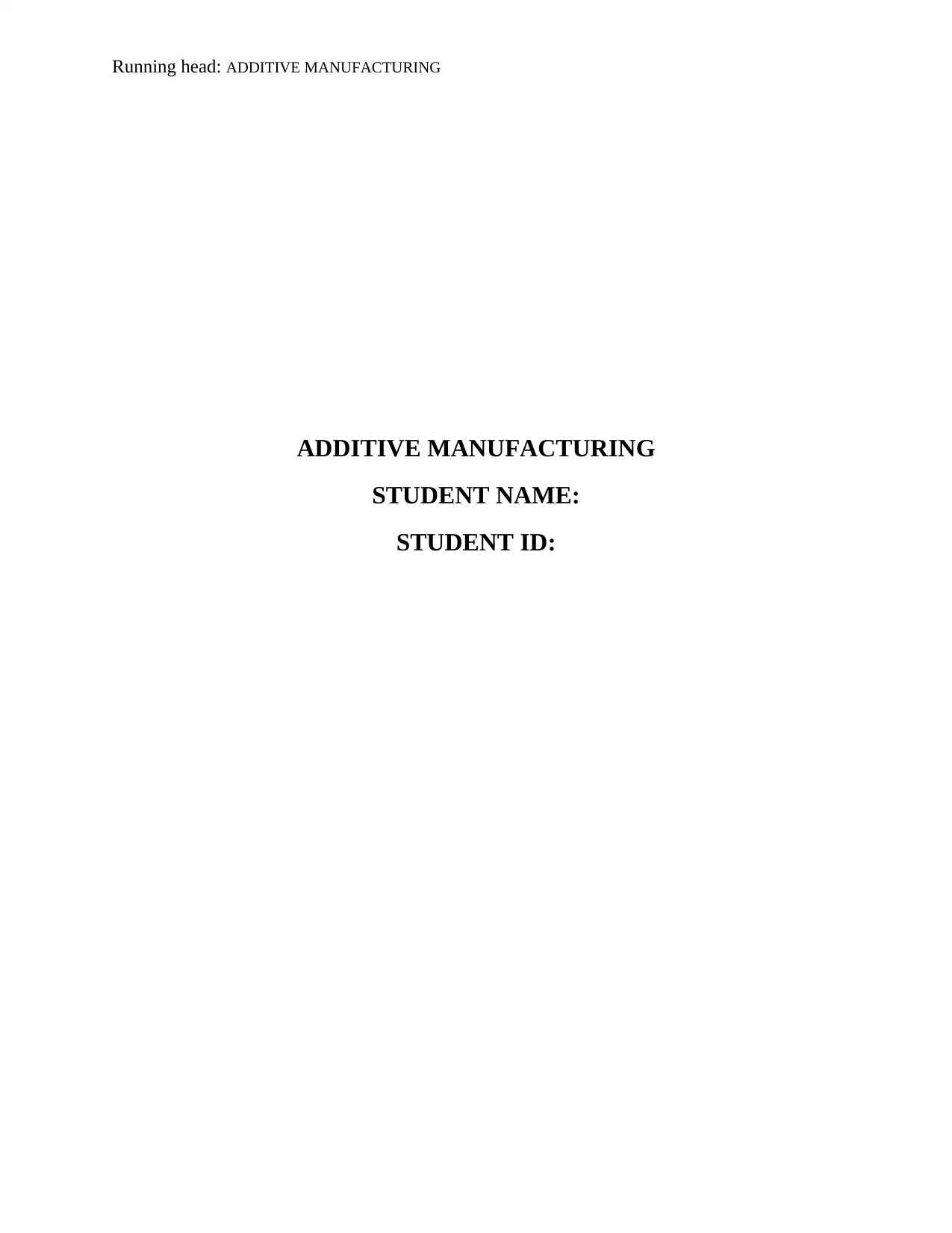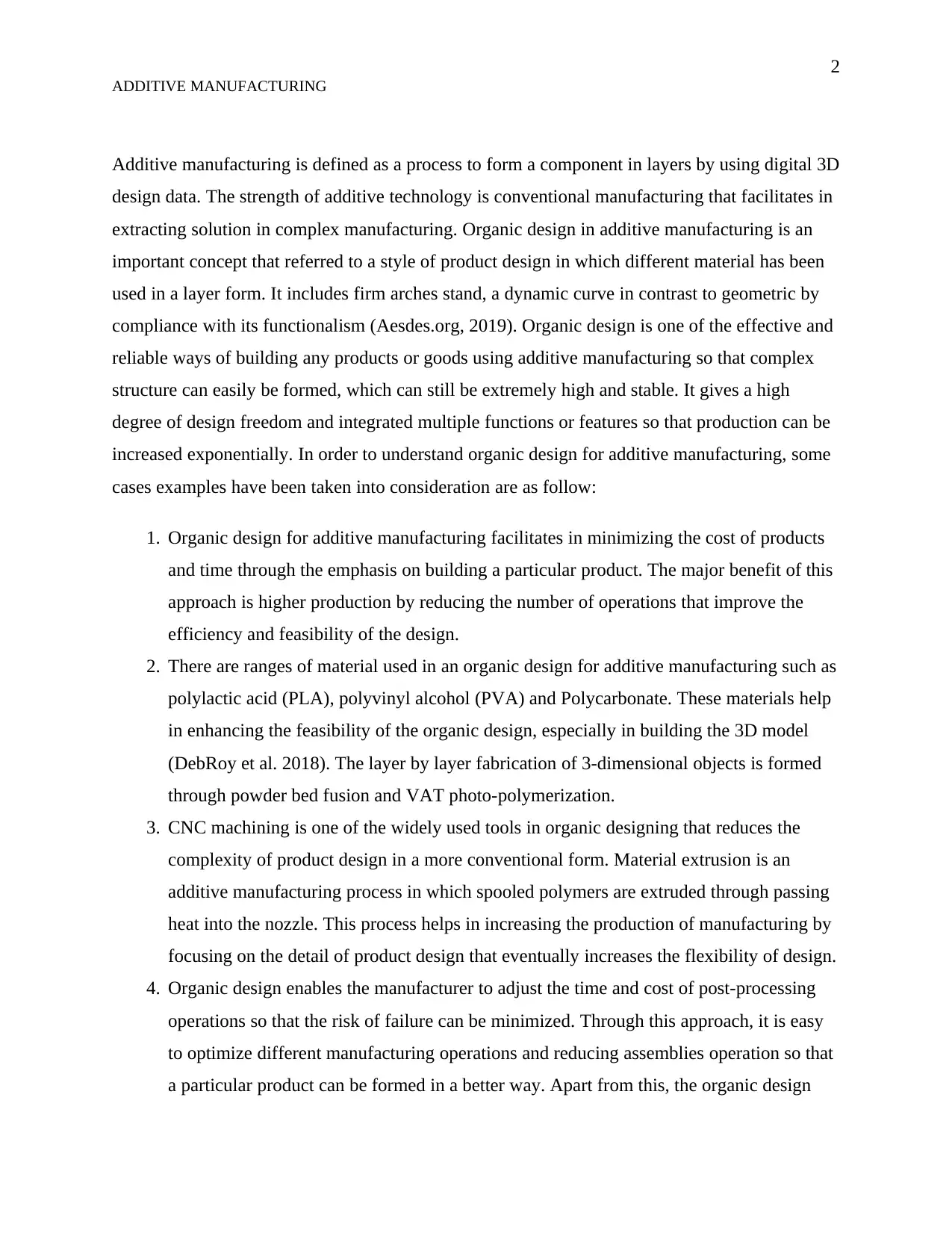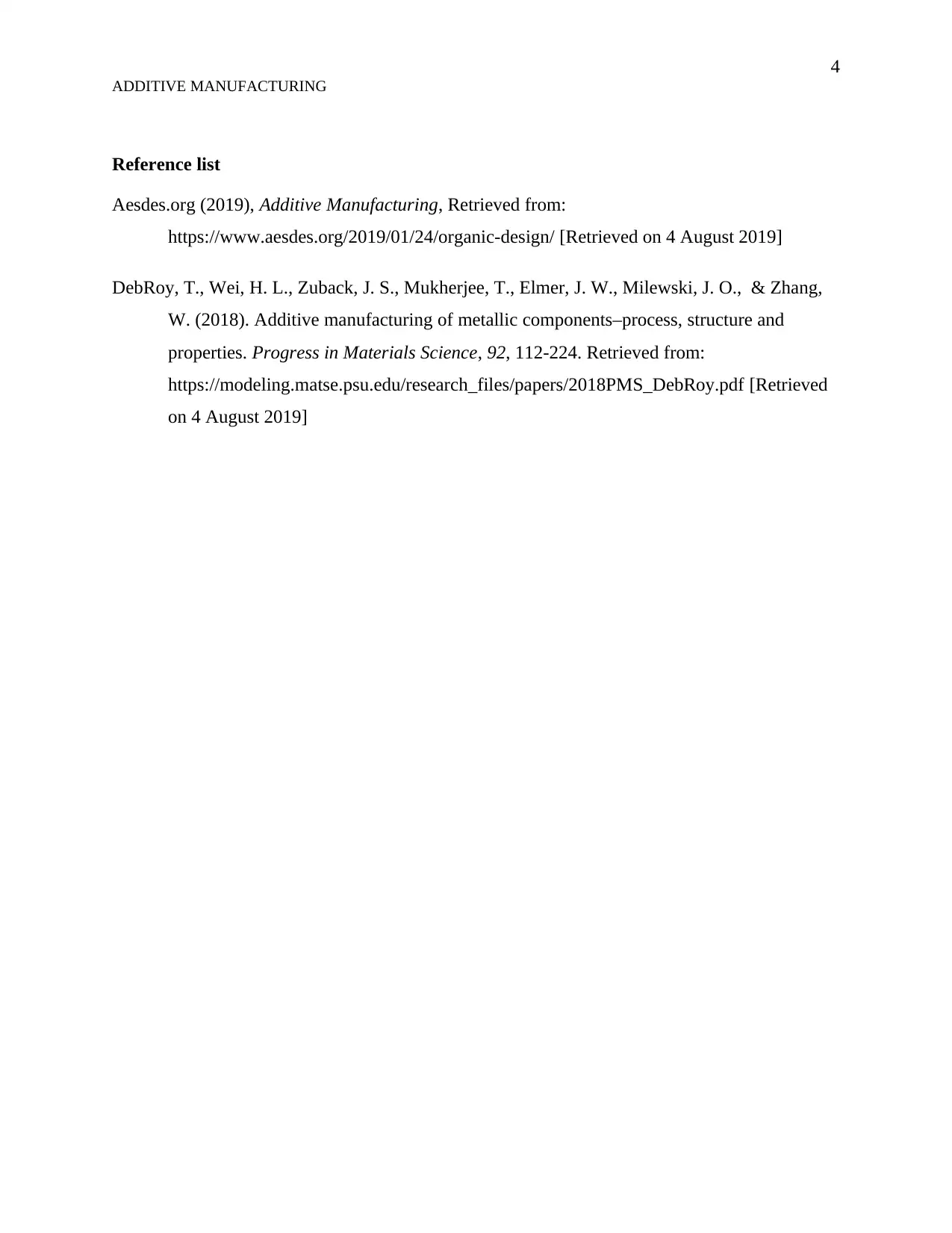Additive Manufacturing: Organic Design and Material Selection Report
VerifiedAdded on 2022/10/10
|4
|550
|217
Report
AI Summary
This report examines additive manufacturing, focusing on the concept of organic design. It highlights how organic design utilizes different materials in a layered form to create complex structures, offering design freedom and the ability to integrate multiple functions. The report discusses the benefits of organic design, such as reduced costs and increased production efficiency through streamlined manufacturing processes. Various materials like polylactic acid (PLA), polyvinyl alcohol (PVA), and Polycarbonate are explored. It also explores processes such as powder bed fusion, VAT photo-polymerization, and CNC machining to reduce design complexity. The report concludes by emphasizing how organic design optimizes manufacturing operations, reduces assembly steps, and encourages innovative technologies to minimize the risk of failure.
1 out of 4











![[object Object]](/_next/static/media/star-bottom.7253800d.svg)